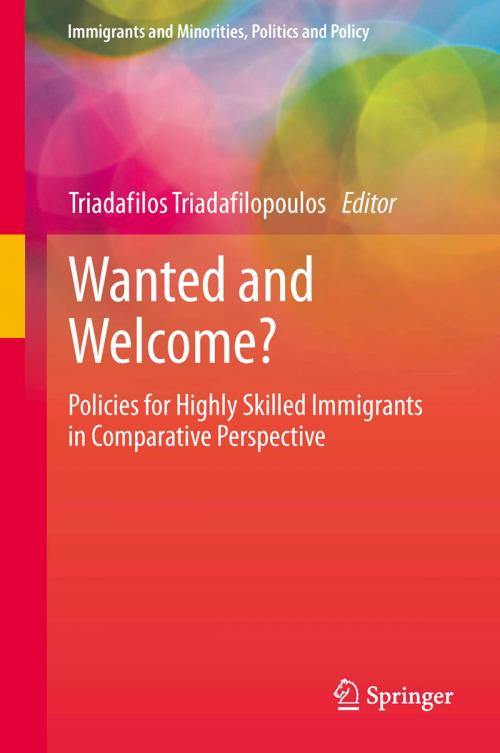Wanted and Welcome?
Policies for Highly Skilled Immigrants in Comparative Perspective
Business & Finance, Career Planning & Job Hunting, Labor, Nonfiction, Social & Cultural Studies, Political Science, Government, Social Policy| Author: | ISBN: | 9781461400820 | |
| Publisher: | Springer New York | Publication: | March 25, 2013 |
| Imprint: | Springer | Language: | English |
| Author: | |
| ISBN: | 9781461400820 |
| Publisher: | Springer New York |
| Publication: | March 25, 2013 |
| Imprint: | Springer |
| Language: | English |
This book considers the origins, performance and diffusion of national immigration policies targeting highly skilled immigrants. Unlike asylum seekers and immigrants admitted under family reunification streams, highly skilled immigrants are typically cast as “wanted and welcome” as a consequence of their potential economic contribution to the receiving society and putative assimilability. Testing the degree to which this assumption holds is the principle aim of this book. In contrast to publications which see highly skilled immigration as functional response to labor market needs, the book probes the political and sociological dimensions of policy, drawing on contributions from an international group of established and new scholars from the fields of history, law, political science, sociology, and public policy. The book is organized into four parts. Part I probes the origins of post-WWII immigration policies in Canada, Australia, and the United States. Part II analyzes recent debates on highly skilled immigration policy in the United States, whose origins go back to the 1965 Act by Congress which favored family reunification over skilled immigration. Part III considers the degree to which highly skilled immigrants are welcome, by focusing on the integration trajectories of foreign trained professionals in Canada. Paradoxically, just as Canada has succeeded in orienting its admissions system more explicitly toward privileging highly educated and skilled professionals, highly skilled immigrants have experienced worsening economic outcomes as reflected in rates of unemployment and falling earnings. Part IV considers the internationalization of highly skilled immigration policies, focusing on Europe’s most important immigration countries, Germany and Britain. As is true in Canada, the labor market outcomes for highly skilled immigrants in Europe are disappointing, and the final chapter discusses why this is the case and what might be done to improve matters. Given its combination of cross-disciplinary insights, cross-national comparisons, and empirical richness, the book will be of interest to both scholars and policymakers concerned with immigration policy.
This book considers the origins, performance and diffusion of national immigration policies targeting highly skilled immigrants. Unlike asylum seekers and immigrants admitted under family reunification streams, highly skilled immigrants are typically cast as “wanted and welcome” as a consequence of their potential economic contribution to the receiving society and putative assimilability. Testing the degree to which this assumption holds is the principle aim of this book. In contrast to publications which see highly skilled immigration as functional response to labor market needs, the book probes the political and sociological dimensions of policy, drawing on contributions from an international group of established and new scholars from the fields of history, law, political science, sociology, and public policy. The book is organized into four parts. Part I probes the origins of post-WWII immigration policies in Canada, Australia, and the United States. Part II analyzes recent debates on highly skilled immigration policy in the United States, whose origins go back to the 1965 Act by Congress which favored family reunification over skilled immigration. Part III considers the degree to which highly skilled immigrants are welcome, by focusing on the integration trajectories of foreign trained professionals in Canada. Paradoxically, just as Canada has succeeded in orienting its admissions system more explicitly toward privileging highly educated and skilled professionals, highly skilled immigrants have experienced worsening economic outcomes as reflected in rates of unemployment and falling earnings. Part IV considers the internationalization of highly skilled immigration policies, focusing on Europe’s most important immigration countries, Germany and Britain. As is true in Canada, the labor market outcomes for highly skilled immigrants in Europe are disappointing, and the final chapter discusses why this is the case and what might be done to improve matters. Given its combination of cross-disciplinary insights, cross-national comparisons, and empirical richness, the book will be of interest to both scholars and policymakers concerned with immigration policy.















